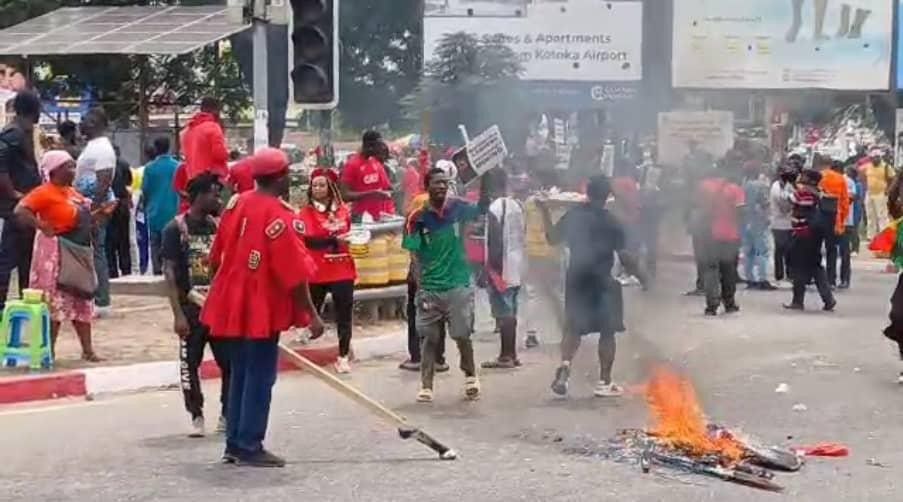Oliver Barker-Vormawor denied bail, Felicity, 4 others granted GH₵20,000 bail
)
The court's decision to refuse Barker Vormawor’s bail came with a directive that the Circuit Court must commence prosecution within 72 hours. The judge warned that failure to begin the prosecution within this timeframe might lead to a reconsideration of Vormawor's bail status.
The refusal of bail for Barker Vormawor stems from concerns raised by the court over his previous release on bail in relation to treason felony charges. These new offences, connected to the Democracy Hub protest, allegedly occurred while Vormawor was still facing trial for the treason charge.
Citing section 96(5c) of the Criminal Procedure Act, the presiding judge expressed concern that granting Vormawor bail could result in him committing further offences. This section allows the court to deny bail if there is reasonable belief that the accused may reoffend.

Barker Vormawor’s legal counsel, Justice Srem Sai, countered this argument, stating that the court's focus should be on whether the accused would appear for trial if granted bail. He pointed out that Vormawor had consistently attended court for his treason case over the past three years, and therefore, was unlikely to abscond over the current, comparatively minor charges.
Despite these arguments, the court maintained its stance, stating that the risk of further offences justified the decision to deny bail.
Meanwhile, Felicity Nelson and four other co-accused involved in the same protest were granted bail under less restrictive conditions. This decision follows a recent ruling in which Ama Governor and eight other protesters were granted bail set at GH₵70,000 each.
The case remains ongoing, with the court’s 72-hour deadline for the commencement of prosecution placing additional pressure on the legal process.
)
)
)
)
)
)
)
)
)
)
)
)
)
)
)
)